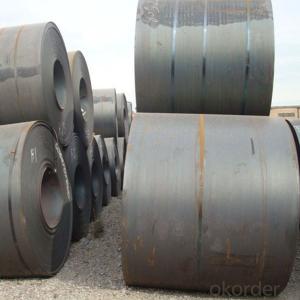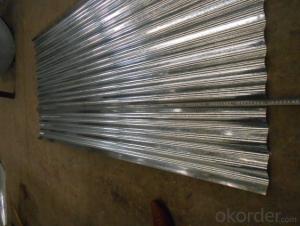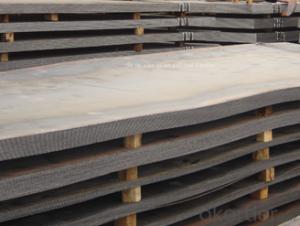Steel Sheets Steel Coils Made in China SS400 Hot Rolls
- Loading Port:
- Tianjin
- Payment Terms:
- TT OR LC
- Min Order Qty:
- 28 m.t.
- Supply Capability:
- 500 m.t./month
OKorder Service Pledge
OKorder Financial Service
You Might Also Like
Item specifice
DESCRIPTION:
GRADE: SS400, ASTM A36, A572, ST37,ST52, Q195, Q215, Q235,Q345, S235JR etc.
STANDARD: GB/T709-2006, ASTM A36, JIS G3101, DIN EN 10025, SAE 1045, ASTM A570
SPEC:
1)Width: 600-2500mm or 1000,1050,1250,1500,1800,2000mm
2)Thickness:1.5mm-200mm or as customers’ special requirements;
3)Length: 2-12m or as customers’ special requirements
DETAILS:
Thickness | 0.5-100mm |
Width | 1250mm,1500mm,1800mm,2000mm.,2500mm or as required |
Length | 2000-12000mm |
Standard | AISI, ASTM, BS, DIN, GB, JIS |
Material | A36,SS400,SPCC,SPHC, Q195, Q 235,Q345 |
Tehnique | Hot rolled;cold rolled |
Payment | TT ,L/C |
Packing | Standard seaworthy packing or as required |
Market | Mild east, North/South America, Europe, Asia,Africa etc |
Certificate | BV,SGS,MTC |
Delivery time | 30-45days after confirming the order |
PACKING:
1.Big thickness:by bulk vessel
2.Small thickness:packed by steel strips and shipped by container
3.According to the requirements of customers'
TRADE TERMS :FOB, CFR, CIF
DETAILED PICTURES FOR STEEL COILS
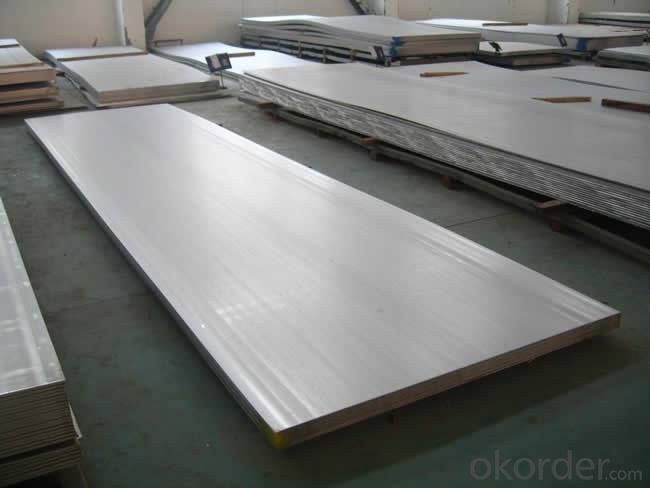
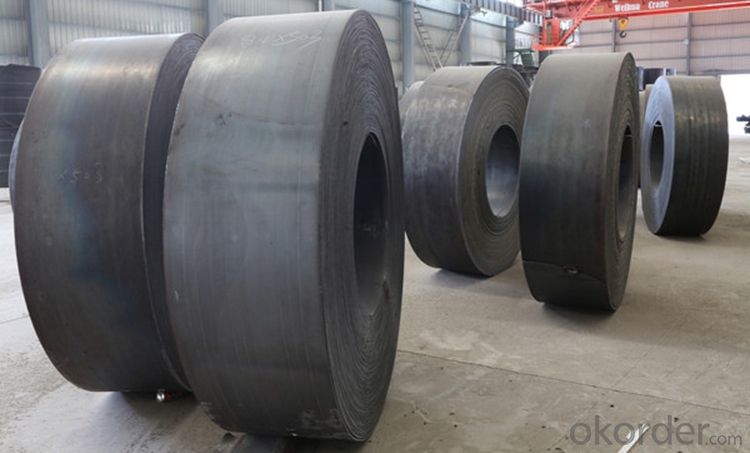
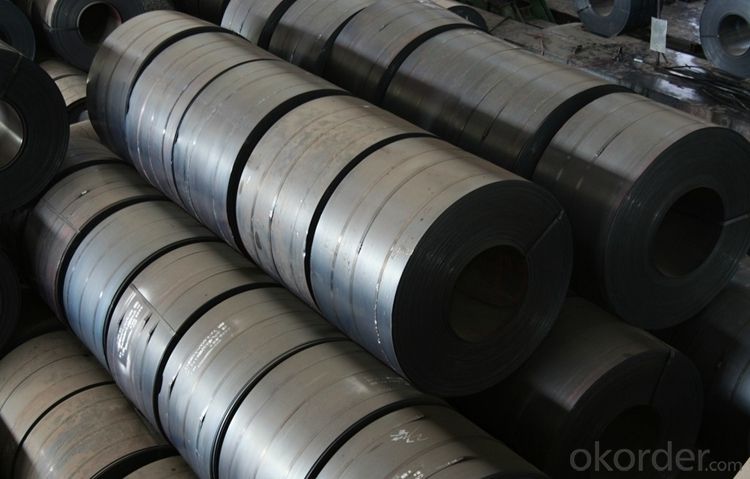
PAYMENT&DELIVERY FOR STEEL COILS/SHEETS
Payment Terms | 100% LC at sight,or 30%TT in advance, balance against B/L copy |
Delivery Time | With 30-40 days after deposit |
Price Terms | Ex-Work, FOB, CNF, CFR, CIF,etc |
FEATURES OF STEEL COILS
(1)Good ductility
(2)Good corrosion resistance
(3)Excellent abrasion resistance and fatigue strength
(4)Good weldability
(5)Oxidation resistant performance
(6)Excellent in high temperature
FAQ
Q:What are the advantages of your company ?
A: We have many professionals, technical personnel, more competitive prices and best after-dales service than other steel companies.
Q:Can you arrange the shipment ?
A: Sure we can help you with the shipment. We have forwarders who have cooperated with us for many years.
- Q:Are steel sheets resistant to termites and insects?
- No, steel sheets are not resistant to termites and insects.
- Q:What is the shelf life of steel sheets?
- The shelf life of steel sheets is typically considered to be indefinite. Unlike perishable goods, steel sheets do not have an expiration date or a limited lifespan. Properly stored and maintained steel sheets can remain in good condition for many years, if not decades, without any significant degradation. However, exposure to certain environmental factors such as moisture, extreme temperatures, and corrosive substances can affect the quality and durability of steel sheets over time. Therefore, it is recommended to store steel sheets in a dry and controlled environment to ensure their longevity and prevent any potential damage or deterioration.
- Q:What are the different manufacturing processes for steel sheets?
- There are several manufacturing processes for steel sheets, including hot rolling, cold rolling, and electro-galvanizing. Hot rolling involves heating the steel above its recrystallization temperature and then passing it through rollers to achieve the desired thickness and shape. Cold rolling, on the other hand, involves passing the steel through rollers at room temperature to further refine its thickness and surface finish. Electro-galvanizing is a process where a layer of zinc is electroplated onto the steel sheet to provide corrosion resistance. Other processes such as pickling, annealing, and coating may also be involved in the manufacturing of steel sheets.
- Q:What are the weight considerations for steel sheets?
- Weight considerations for steel sheets vary depending on the specific application and desired outcomes. Here are a few important points to keep in mind: 1. Thickness: The weight of a steel sheet is greatly influenced by its thickness. Thicker sheets generally have more weight, while thinner sheets are lighter. It is important to select a thickness that meets the project's structural requirements while also considering weight limitations. 2. Strength requirements: Different applications call for steel sheets with varying levels of strength. High-strength sheets are often thicker and heavier, while lower strength sheets can be thinner and lighter. Understanding the strength requirements of the project is essential in determining the appropriate weight of the steel sheets. 3. Transportation and handling: The weight of steel sheets affects how easy they are to transport and handle. Heavier sheets require more labor and equipment for lifting, loading, and unloading. Additionally, transport vehicles have weight restrictions that must be taken into account when choosing sheet sizes. 4. Structural limitations: The weight of steel sheets can impact the overall structural design. In some cases, lighter sheets may be preferred to reduce the load on supporting structures. However, in other situations, heavier sheets may be necessary to provide the required strength and stability. 5. Cost considerations: The weight of steel sheets also affects the overall project cost. Heavier sheets generally cost more due to the increased material needed and additional handling expenses. Therefore, it is important to find a balance between weight, cost, and performance to optimize the project budget. In conclusion, weight considerations play a crucial role in determining the appropriate thickness, strength, transportation requirements, structural design, and cost-effectiveness of steel sheets for a project. By carefully evaluating these factors, one can select steel sheets that meet specific needs while ensuring the optimal weight for the desired outcome.
- Q:Can steel sheets be used for insulation in buildings?
- No, steel sheets cannot be used as insulation in buildings. Steel is a highly conductive material, meaning it allows heat to pass through it easily. Insulation, on the other hand, is designed to resist the flow of heat, keeping the interior of a building warm in winter and cool in summer. Materials such as fiberglass, foam, or cellulose are commonly used for insulation as they have low thermal conductivity.
- Q:What is the maximum width of steel sheets?
- The maximum width of steel sheets can vary depending on the specific type and grade of steel, but it typically ranges from 72 inches to 96 inches.
- Q:How are steel sheets protected from rust and corrosion?
- Various methods and coatings are utilized to safeguard steel sheets from rust and corrosion. One widely used technique involves the application of a protective layer known as galvanized coating. This entails immersing the steel sheets in a bath of molten zinc, thereby establishing a barrier between the steel and its surroundings. The zinc coating functions as a sacrificial anode, corroding before the steel does. This sacrificial shield effectively prevents the infiltration of rust and corrosion onto the steel surface. An alternative method of protection involves the use of organic coatings, such as paint. These coatings create a physical barrier between the steel and the external environment, effectively shielding the metal from moisture and other corrosive elements. The application of paint can be accomplished through various techniques, including spraying, rolling, or electrostatic deposition. In addition to galvanized coatings and paint, steel sheets can also be protected through the utilization of other coatings like epoxy or polyurethane. These coatings offer enhanced protection against corrosion, particularly in harsh environments or when the steel sheets are exposed to chemicals or abrasive substances. Regular maintenance and inspections play a crucial role in the prevention of rust and corrosion on steel sheets. This involves surface cleaning, the removal of any debris or contaminants, and the repair of any damaged or worn-out coatings. By adhering to these preventive measures, steel sheets can remain shielded and maintain their structural integrity for an extended lifespan.
- Q:What are the different grades of steel used for manufacturing sheets?
- The different grades of steel used for manufacturing sheets include low carbon steel, medium carbon steel, high carbon steel, stainless steel, and alloy steel.
- Q:How do steel sheets perform in corrosive environments like saltwater?
- Steel sheets perform well in corrosive environments like saltwater due to their inherent resistance to rust and corrosion. This is primarily because of the presence of chromium in the steel, which creates a protective layer of chromium oxide on the surface of the metal. This layer acts as a barrier and prevents the steel from coming into direct contact with the corrosive elements in saltwater, thereby minimizing the risk of corrosion. However, it is important to note that while steel sheets have good resistance to saltwater corrosion, they are not entirely immune to it. Prolonged exposure to saltwater can still cause some level of corrosion, especially in the presence of other factors such as high temperatures, abrasion, or impurities in the water. To enhance the performance of steel sheets in saltwater environments, various protective coatings can be applied. These coatings, such as paint, galvanization, or epoxy, provide an additional layer of protection to the steel, further minimizing the risk of corrosion. Regular maintenance and inspection are also essential to ensure the long-term performance of steel sheets in saltwater environments. This includes cleaning the surface, removing any accumulated salt or debris, and repairing any damaged or compromised areas of the protective coating. Overall, while steel sheets have good resistance to corrosion in saltwater environments, it is crucial to take proper precautions, such as using protective coatings and regular maintenance, to ensure their optimal performance and longevity.
- Q:How do you calculate the weight of a steel sheet?
- To calculate the weight of a steel sheet, you need to know its dimensions (length, width, and thickness) and the density of the specific type of steel being used. The weight can be calculated by multiplying the volume (length x width x thickness) by the density.
1. Manufacturer Overview |
|
|---|---|
| Location | |
| Year Established | |
| Annual Output Value | |
| Main Markets | |
| Company Certifications | |
2. Manufacturer Certificates |
|
|---|---|
| a) Certification Name | |
| Range | |
| Reference | |
| Validity Period | |
3. Manufacturer Capability |
|
|---|---|
| a)Trade Capacity | |
| Nearest Port | |
| Export Percentage | |
| No.of Employees in Trade Department | |
| Language Spoken: | |
| b)Factory Information | |
| Factory Size: | |
| No. of Production Lines | |
| Contract Manufacturing | |
| Product Price Range | |
Send your message to us
Steel Sheets Steel Coils Made in China SS400 Hot Rolls
- Loading Port:
- Tianjin
- Payment Terms:
- TT OR LC
- Min Order Qty:
- 28 m.t.
- Supply Capability:
- 500 m.t./month
OKorder Service Pledge
OKorder Financial Service
Similar products
New products
Hot products
Related keywords
